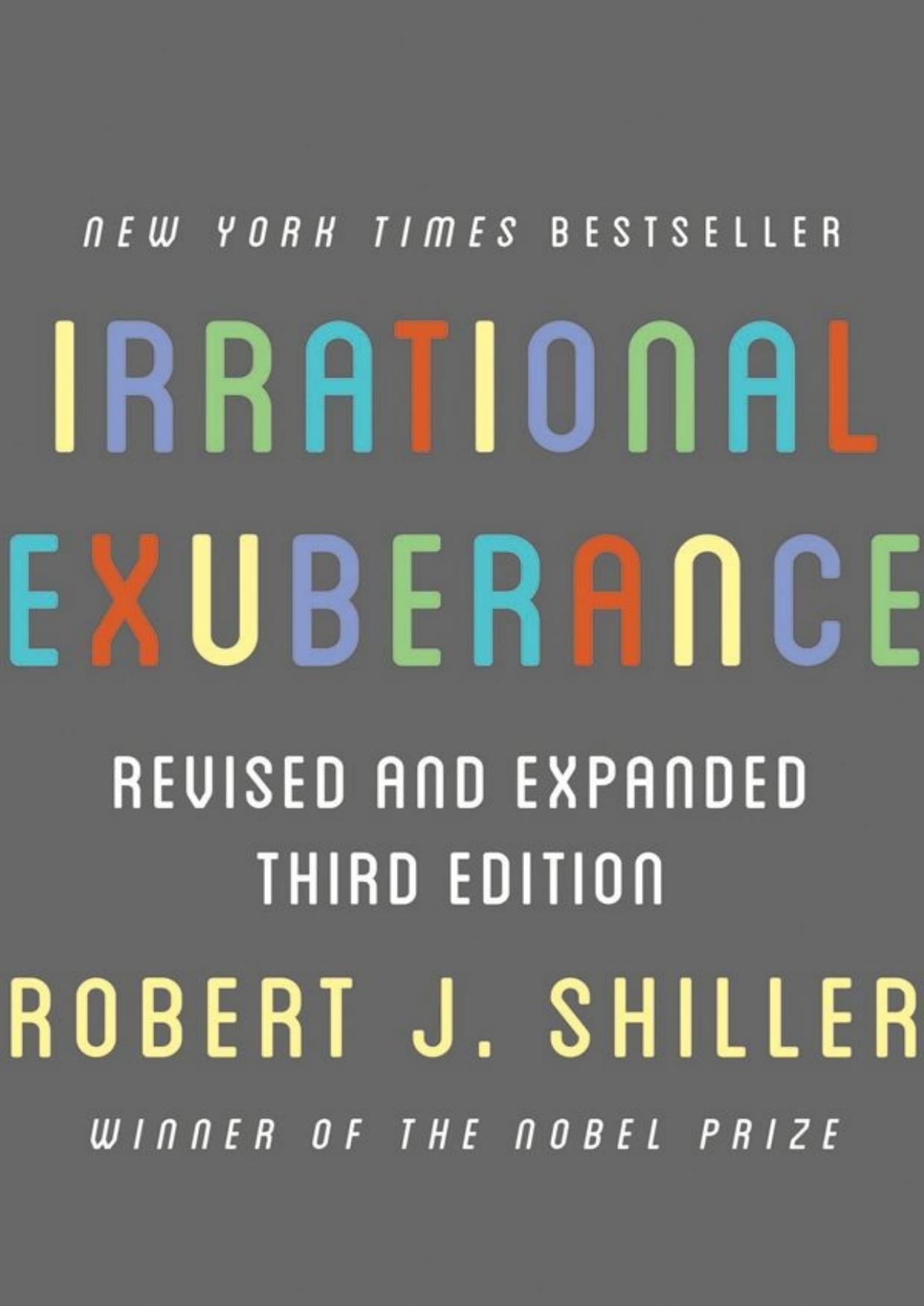Irrational Exuberance by Robert J. Shiller

Author:Robert J. Shiller
Language: eng
Format: mobi, epub, pdf
Publisher: Princeton University Press
Published: 2015-01-24T22:00:00+00:00
Economic Theories of Herd Behavior and Information Cascades
Even completely rational people can participate in herd behavior when they take into account the judgments of others, and even if they know that everyone else is behaving in a herd-like manner. The behavior, although individually rational, produces group behavior that is, in a well-defined sense, irrational. This herd-like behavior is said to arise from an information cascade.5
A simple story will illustrate how such an information cascade could get started. Suppose two restaurants open next door to each other. Each potential customer must choose between the two. Would-be customers may be able to make some judgments about the quality of each of the restaurants when viewing it through the front window, but such judgments will not be very accurate. The first customer who arrives must choose based only on viewing the two empty restaurants and makes a choice. However, the next potential customer can rely not only on his or her own information, based on the appearance of the restaurants, but also—by seeing the first customer eating in one or the other of the restaurants—on information about the choice made by the first customer. If the second customer chooses to go to the same restaurant as the first, the third customer will see two people eating in that restaurant. The end result may be that all customers wind up eating at the same restaurant—and it could well be the poorer restaurant, since there was no real consideration of the combined evidence inherent in all their observations about the two restaurants. If all of them had been able to pool their first impressions and discuss these as a group, they might have been able to deduce which restaurant was likely to be the better one. But in this scenario, they cannot make use of each other’s information, since they do not reveal their own information to others when they merely follow them.
The restaurant story, and the economic theory that underlies it, is not in itself a theory of stock market bubbles. However, it has clear relevance to stock market behavior, and it can provide a foundation for a theory about how rational investors may be led astray.6 According to such a theory, the popular notion that the level of market prices is the outcome of a sort of vote by all investors about the true value of the market is just plain wrong. Hardly anyone is really voting. Instead people are rationally choosing not to, as they see it, waste their time and effort in exercising their judgment about the market, and thus choosing not to exert any independent impact on the market. Ultimately, all such information cascade theories are theories of the failure of information about true fundamental value to be disseminated and evaluated.
It is important to emphasize that this failure to disseminate information to others can be modeled in economic theory in terms of purely rational behavior with no limitations of intelligence, only limitations of revealed information. But to achieve a better
Download
Irrational Exuberance by Robert J. Shiller.epub
Irrational Exuberance by Robert J. Shiller.pdf
This site does not store any files on its server. We only index and link to content provided by other sites. Please contact the content providers to delete copyright contents if any and email us, we'll remove relevant links or contents immediately.
Rich Dad Poor Dad by Robert T. Kiyosaki(6595)
Pioneering Portfolio Management by David F. Swensen(6280)
How To Win Friends and Influence People by Dale Carnegie(4495)
The Money Culture by Michael Lewis(4185)
The Dhandho Investor by Mohnish Pabrai(3750)
The Wisdom of Finance by Mihir Desai(3726)
Liar's Poker by Michael Lewis(3436)
Fooled by Randomness: The Hidden Role of Chance in Life and in the Markets by Nassim Nicholas Taleb(3103)
The ONE Thing by Gary Keller(3057)
The Intelligent Investor by Benjamin Graham Jason Zweig(3034)
Mastering Bitcoin: Programming the Open Blockchain by Andreas M. Antonopoulos(3033)
The Psychology of Money by Morgan Housel(2947)
Rich Dad Poor Dad: What The Rich Teach Their Kids About Money - That The Poor And Middle Class Do Not! by Robert T. Kiyosaki(2946)
Investing For Dummies by Eric Tyson(2941)
How to Day Trade for a Living: Tools, Tactics, Money Management, Discipline and Trading Psychology by Andrew Aziz(2940)
How to Win Friends and Influence People by Dale Carnegie(2899)
Market Wizards by Jack D. Schwager(2694)
How to Pay Zero Taxes, 2018 by Jeff A. Schnepper(2642)
Zero Hour by Harry S. Dent Jr. & Andrew Pancholi(2641)
